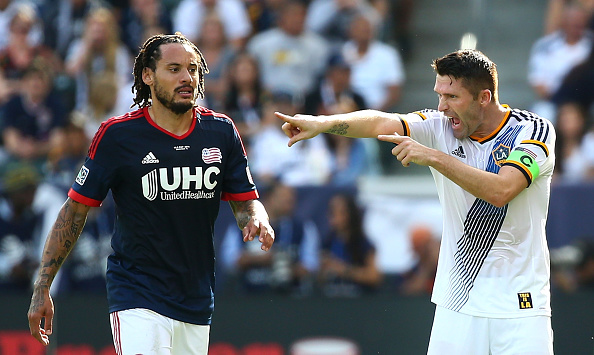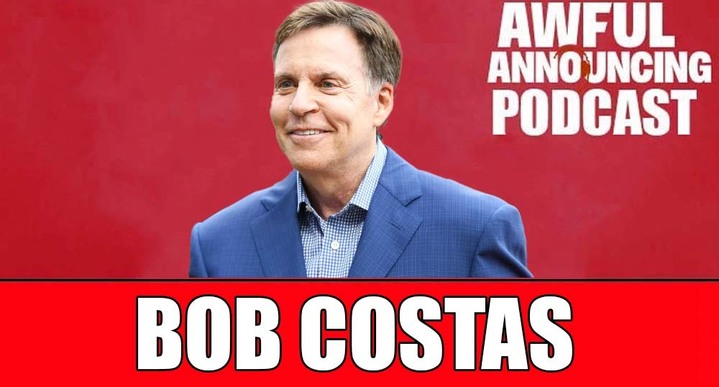MLS ratings are up. Hooray! Sort of.
There’s no secret most American footy fans prefer to get our kicks on the wrong side of the road, so to speak, with EPL and Champions League ratings regularly exceeding that of the homespun soccer presentation of Major League Soccer. The biggest problem for MLS over the last, let’s say, decade has been that coverage of the world’s top leagues has been more prevalent in the United States, not to mention more standardized in terms of TV windows and shown and at a far higher quality than what the media partners for MLS had been willing or able to provide.
Every weekend, soccer fans know they’re getting an exclusive window on Saturday and Sunday for Premier League coverage, and even if that match is a mid-table clash between Southampton and Aston Villa, it’s waiting there for us like a warm pot of English tea after sunrise. (There’s a Kyle Martino hair-as-crumpet joke in here somewhere. I know it.)
While most fans still contend that the product in England is, was and will be better than the product here in MLS—it’s a fun debate, frankly, whether NYCFC would beat QPR or DC United could ever hang with West Ham United or heaven forbid the United crew in Manchester—there has been little debate that more people watch the EPL in America than tune in for MLS, relegating, if you pardon the pun, the “which league is better debate” behind the more important “which is more popular” conversation ad execs are having.
http://gty.im/455657914
Look, the MLS product is always going to be second fiddle to other parts of the world, and the attention the league gets on television is somewhat tied to that. If you could watch one of the best leagues in the world on Sunday morning, most fans won’t choose a lesser product at a time when other sporting events and network dramas are dominating the airwaves.
Moreover, until the new television deal put a standard window for MLS matches on Sundays on ESPN and Fox Sports 1, it felt nearly impossible to find an MLS match when you wanted to. NBC’s coverage of MLS was haphazard at best, clearly focused more on EPL matches than the American league.
FS1, for all its fledgling foibles, has been far more committed to MLS than Fox or NBC was in the past, and ESPN’s continued relationship with the league seems slightly buoyed by the new television contract signed this year.
MLS Sunday:
NYCRB vs NYCFC on FS1: 233K
Houston vs Toronto on ESPN2: 177Kcc: @thegoalkeeper
— Sports TV Ratings (@SportsTVRatings) May 12, 2015
Those numbers aren’t great for sports on TV, but they are an improvement by and large for MLS, which is a step in the right direction, no matter how small that step may be.
Add to the Hudson River Derby the 32,000 viewers who watched on Fox Deportes—a number shared to AA via industry contacts—and the total viewership rises to over a quarter of a million people.
It’s also worth noting that match coincided with the playoff of the Players Championship, the start of the Clippers and Rockets and the New York Rangers playing the Washington Capitals all at the same time, the last of which clearly had the biggest impact on New York’s local ratings, which surely hurt the national number for FS1.
What may be most concerning to MLS is not that Chelsea and Liverpool had nearly 600,000 viewers that morning in a match that meant virtually nothing, or that a women’s friendly between USA and Ireland had 319,000 in the afternoon on FS1, it’s that the audience that directly followed that match to watch the Hudson River Derby was two-thirds the size in overall viewership. The match on ESPN2 that was on against the women’s game did less, per SportsTVRatings.com, than ESPN2 got that morning for The Sports Reporters.
http://gty.im/460397648
For what it’s worth—and for soccer advertisers it’s worth a lot—Liga MX averages higher numbers than MLS as well, including this past Sunday. MLS ratings are getting better, a byproduct of the rise in popularity and increased availability of soccer on all platforms in America. Real Madrid and Valencia, for example, had 298,000 viewers on Saturday on BeIn Sports, with Barcelona and Real Sociedad earning 158,000 just before that.
All told ratings are better for MLS, which is something for the league to champion while it can. Per Jonathan Tannenwald of Philly.com in April, national TV ratings for MLS have been up so far this season:
ESPN2’s 5 p.m. Sunday broadcasts are averaging 283,000 viewers per game – an 18 percent increase from the 240,000-per-game average in 2014 for games across all ESPN networks.
It’s also worth noting that Fox Sports 1’s average viewership for MLS so far this season is 219,000. That is a 54 percent increase on NBCSN’s 2014 average of 142,000, which was the highest in its three years broadcasting MLS. The consistent 7 p.m. Sunday time slot is surely working in FS1’s favor. NBCSN started games as late as 11:20 p.m. at times, and it did so not just on weekends.
Tannenwald also pointed out in that piece that Friday night games on Univision had averaged, as of mid-April, 325,000 viewers for MLS matches, with the games simulcast on UniMás and Univision Deportes as well.
Any growth in interest is important for MLS, and the new television deal is in its relative infancy, so many soccer fans may not even know about the league’s increased visibility in standard television windows. Add in the record-setting attendance for the league, bolstered by Orlando City’s inclusion in the league in 2015—the Kaká effect—and MLS is doing better than ever. When that growth really starts to matter (and when MLS becomes the most popular soccer product in America) remains to be seen. That…could take a while.








Comments are closed.